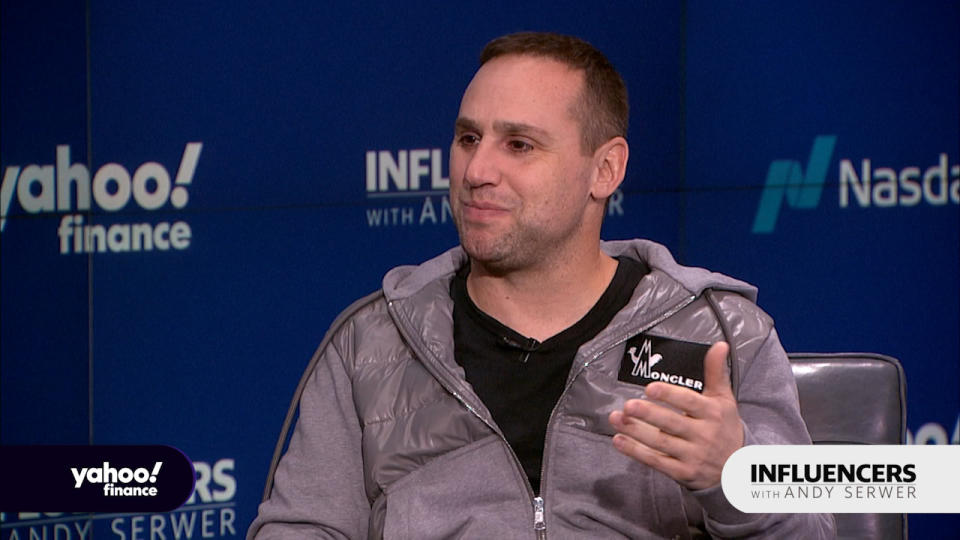A wealth tax would have the ‘opposite effect of what you want to happen,’ says billionaire entrepreneur Michael Rubin
Wealth tax proposals have generated broad approval among many people — except billionaires.
In a newly released interview, taped last month, billionaire sports merchandising executive Michael Rubin joined the ranks of the ultra-rich who’ve blasted wealth tax proposals put forward by progressive senators and presidential candidates, Bernie Sanders (I-VT) and Elizabeth Warren (D-MA). The remarks highlight a sharp disagreement between the left’s firebrands and some of America’s wealthiest individuals as the first votes are set to be cast in the Democratic presidential primary next month.
“It would have the exact opposite effect of what you want to happen,” Rubin, whose net worth Forbes puts at $2.9 billion, says of a wealth tax.
“I'm not saying that because I'm a successful guy,” he adds. “I'm saying that because to me, what makes America great is this is a true land for the entrepreneur. You can come here and you can build your business.”
Tax policies put forward by Warren and Sanders would discourage entrepreneurs from starting companies in the U.S., undermining the revenue-raising goal of the taxes, Rubin said.
“The way he and Elizabeth Warren have talked about this net worth tax as I understand it is, if you're a private company, we're just going to take shares from your company each year,” Rubin says. “So you're saying, hey, it may take you 20 years to build a company, but we're going to take 3% of it or 5% every year.”
(In fact, the wealth tax proposals put forward by Warren and Sanders would tax the value of shares of stock owned by individuals but would not take them away. A corporate tax proposal put forward by Sanders, however, would transfer 2% of some companies’ stock to their employees each year until the employees own 20% of the shares.)
“I think the effect of having a net worth tax would take people that are starting companies and say, I'm not going to start them in America, but go somewhere else, because it's such a negative impact,” Rubin adds.
Rubin has started and led businesses since age 10, when he ran a small snow shoveling operation. By 18, he owned five ski shops. A couple decades later, in 2011, Rubin sold e-commerce company GSI Commerce to eBay for $2.4 billion.
“What would happen is people won't start businesses here anymore,” says Rubin, the executive chairman of Fanatics, the sports apparel and fan gear store.
Since 2017, Rubin has donated about $22,000 to PACs in support of Democratic New Jersey Senator and presidential candidate Cory Booker, who criticized Warren’s wealth tax proposal in a debate last November.
In recent months, prominent billionaires like hedge fund manager Leon Cooperman and former Microsoft CEO Bill Gates have denounced wealth tax proposals. Last November, Gates told The New York Times that he’d be willing to pay more in taxes but joked he would get wary if asked to pay $100 billion and questioned how “open-minded” Warren is. After a cordial Twitter exchange between Gates and Warren, she released an online calculator that shows how much billionaires would pay in taxes under her plan.
A New York Times/Survey Monkey poll last November found 63% support for Warren’s wealth tax proposal, which would place an annual 2% tax on the wealth of people with assets above $50 million, and a 3% tax on the wealth of people with assets totaling more than $1 billion. The poll, which surveyed 2,672 people, found 77% support for the tax among Democrats and 57% support among Republicans.
A New York Times story about the poll described majority support for the proposal among every demographic, except for Republican men with college degrees. As the article notes, that demographic is made up disproportionately of those who would pay the tax.
Rubin made the comments during a conversation that aired in an episode of Yahoo Finance’s “Influencers with Andy Serwer,” a weekly interview series with leaders in business, politics, and entertainment.
Currently, Rubin is a partner of the Philadelphia 76ers and New Jersey Devils. Plus, he’s executive chairman of Fanatics, and the REFORM Alliance co-chair.

Though he rejected a wealth tax, Rubin called on rich individuals to donate their wealth and time to address social problems.
“If wealthy people put both their money and their time into fixing issues, I think we'd have much better results than if the government tried to fix those same issues,” he says.
“But I'm definitely very negative on the aspect of what would happen if there was that wealth tax, because I think what would happen is people won't start businesses here anymore.”
Max Zahn is a reporter for Yahoo Finance. Find him on twitter @MaxZahn_.
Read more:

 Yahoo Finance
Yahoo Finance 
